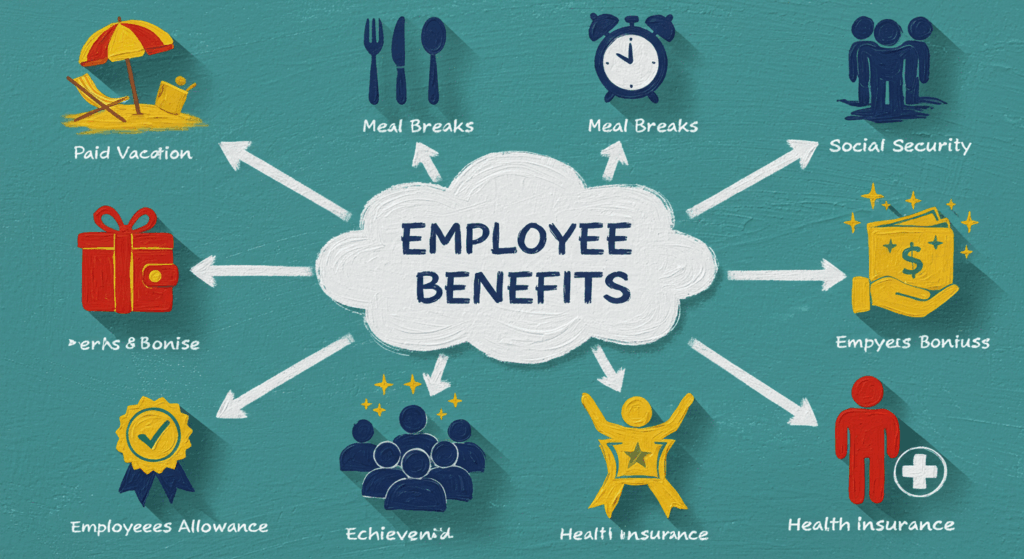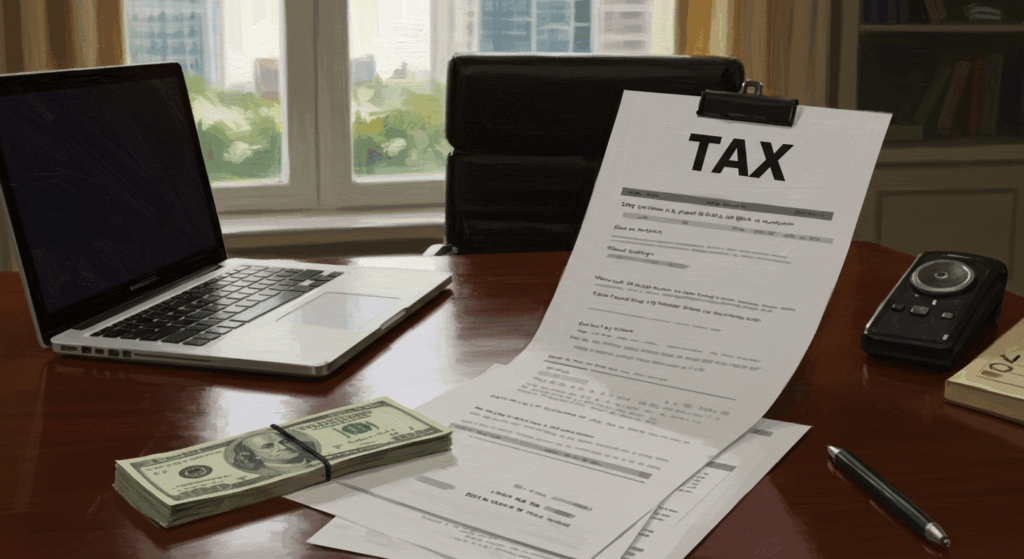So, let’s be honest for a sec: being a young worker in today’s world is kinda wild. Rent is high, iced lattes somehow cost more than your childhood allowance, and don’t even get me started on avocado toast jokes. We’re basically trying to figure out adulting while also surviving on jobs that sometimes pay “experience” more than actual dollars.
But here’s the thing: saving money is still possible. Not easy, not glamorous, but totally do-able. And no, I’m not about to tell you to give up your $5 Starbucks completely, because ngl, sometimes that cold brew is literally the only thing keeping me functional. What I will do is share some practical, real-life saving hacks that don’t feel like punishment. Think of this as advice from a slightly sleep-deprived friend who’s been there, googled all the money stuff, tried a bunch of hacks, and is now passing them on.
So grab your drink (homemade coffee or not, no judgment), and let’s dive into some saving hacks that can make a difference in your Money & Work life without making you feel like you’re trapped in a finance textbook.
Why Saving Feels So Hard Right Now
Before we jump into hacks, let’s acknowledge reality. Inflation is doing the abslute most, wages aren’t exactly keeping up, and our feeds are full of people flexing designer stuff or exotic vacations that make us feel broke in comparison. On top of that, rent, gas, groceries, streaming subscriptions (do we really need five?), and student loans are like little vacuum cleaners sucking cash out of your wallet.
So yeah, saving is tough. But it’s not about being perfect; it’s about being intentional. You don’t need to hoard every penny like you’re on some survival show. You just need a few strategies that make sense for your lifestyle.
Smart Saving Hacks: Keep More Money Without Feeling Broke
1: Automate That Savings Like a Pro
Here’s the unsexy truth: you probably won’t save much if you wait until the end of the month to “see what’s left.” Spoiler: nothing’s left. Netflix, Uber Eats, and Target runs already claimed it.
So what works? Automatic transfers. Set up your bank so that a chunk of your paycheck goes straight into savings the second it lands. Even if it’s $25 or $50 per paycheck, it adds up. It’s like tricking your brain — if you don’t see the money in your checking account, you’re less likely to spend it.
Think of it like paying yourself first. You wouldn’t ghost your landlord or forget to pay Spotify, right? So don’t ghost your future self either.
2: The “Fun Budget” Actually Works
Budgeting gets such a boring rep. Like, it sounds like spreadsheets, calculators, and being told “no” 24/7. But honestly? A budget is just a plan for your money. And the best ones include fun.
Set aside a little “fun money” every month. Could be for brunch, concert tickets, or even that random thing you saw on TikTok shop. The point is, if you give yourself guilt-free space to spend, you’re less likely to blow your entire paycheck in one weekend.
I once tried a budget where I cut out all fun purchases. Guess what happened? By week three, I was rage-ordering takeout and buying $70 skincare I didn’t need. Don’t be me.
3: Cook More, But Keep It Real
We all know eating out is pricey. But meal prepping like a bodybuilder isn’t realistic for everyone. The hack here is balance: cook a few easy meals at home and keep go-to cheap groceries around so you don’t have to DoorDash every time you’re hungry.
Honestly, you don’t need to become Gordon Ramsay. Pssta with veggies? Wraps? A big pot of chili you eat for three days? Perfect. Pro tip: learn like 3-5 “lazy meals” you actually enjoy, and rotate them. Saves money and mental energy.
4: The 24-Hour Rule for Impulse Buys
We live in the era of “add to cart.” Online shopping makes it too easy. You see something cute, your brain goes, “Treat yourself!” and suddenly you’ve got three packages on the way.
Enter: the 24-hour rule. Anytime you want to buy something non-essential, wait a day. Most of the time, the craving passes. And if it doesn’t, at least you know you actually wanted it.
This little pause has saved me from some truly questionable purchases (like a mini projector I would’ve used exactly once).
5: Rethink Subscriptions (Yeah, All of Them)
Subscriptions are sneaky. They’re only $5–15 each, but multiply that by six services and suddenly you’re paying more than cable. Netflix, Hulu, Disney+, Spotify, Apple Music, Amazon Prime… it’s like a never-ending roll call.
Audit your subscriptions. Do you really need all of them at the same time? Rotate them. Like, keep Netflix this month, cancel Hulu, then switch next month. Or share with a roommate/friend (yes, I said it).
6: Take Advantage of Free Stuff
One of the best hacks? Free entertainment. Parks, libraries, free events in your city, community concerts, podcasts, YouTube workouts — the list goes on. You don’t need to spend $80 every weekend to have fun.
Also, loyalty programs and student/young worker discounts are everywhere. It feels like free money when you actually use them.
7: Separate Accounts for Separate Goals
If you’re saving for multiple things — like an emergency fund, a trip, or eventually moving out of your parents’ place — keep the money in separate accounts. It helps you stay organized and keeps you from “accidentally” dipping into savings when you see all the cash lumped together.
Some banks let you create little “buckets” inside your savings. Naming them can be surprisingly motivating. Like, seeing “Bali 2026” grow feels way better than just a random savings number.
8: Side Hustles (But Keep Your Sanity)
We live in the age of hustle culture, where everyone seems to be selling something on Etsy or making TikToks for cash. Side hustles can help a lot, but don’t burn yourself out trying to juggle five jobs.
If you do want extra income, find something that fits your skills and energy level. Babysitting, tutoring, freelancing, reselling clothes, even dog-walking. The key is to make it work with your lifestyle, not destroy your social life. Remember, Money & Work are important, but so is mental health.
9: Build an Emergency Fund (Even Small)
Adulting reality check: emergencies happen. Flat tires, broken laptops, sudden medical bills. Having even $500 set aside can make a huge difference.
Start small. Don’t stress about hitting 3-6 months of expenses right away. Just focus on putting something aside consistently. Think of it as buying peace of mind.
10: Normalize Talking About Money & Work
This one’s more cultural than tactical. For some reason, people act like money talk is taboo, but keeping everything secret just makes it harder to learn. Share hacks with friends, ask about their saving tips, and be open about struggles.
Like, if your coworker brags about getting a raise, ask how they negotiated. Or talk to friends about what’s working for them. Money doesn’t have to be this mysterious, scary thing.
11: Avoid Lifestyle Creep
Ever notice how when you get a raise, suddenly your expenses grow too? You upgrade your apartment, buy fancier clothes, order takeout more often… and somehow, you’re still broke. That’s lifestyle creep.
The hack: when your income goes up, keep living mostly the same and stash the extra in savings or investments. Easier said than done, but worth it.
12: Think Long-Term (But Don’t Freak Out)
Look, retirement feels a million years away, but young workers have the advantage of time. Even small contributions to a retirement account now grow massively thanks to compound interest.
If your job offers a 401(k) match, take it. That’s literally free money. If not, consider a Roth IRA. You don’t need to max it out to benefit. Even $20–$50 a month makes future-you very happy.
13: Gamify Saving
Saving doesn’t have to be boring. Turn it into a game. Apps exist that round up purchases and stash the difference, or you can make personal challenges (like “no-spend weekends” or “save $100 this month or no Starbucks next month”).
I once did a challenge where every time I skipped buying coffee, I transferred $4 into savings. After a month, I had $60 I wouldn’t have otherwise. Felt like winning.
14: Secondhand Is Your Friend
Thrifting is cool again, and for good reason. Clothes, furniture, electronics — you can score great deals secondhand. Apps, thrift shops, Facebook Marketplace… all way cheaper than buying new. And honestly, sometimes cooler.
15: Remember Balance Is Key
At the end of the day, saving isn’t about living like a monk. It’s about balance. Treat yourself sometimes. Enjoy life. Just don’t let money control you.
Final Thoughts: You Got This
Being a young worker right now isn’t easy. Money & Work can feel overwhelming, and saving might seem like some impossible adult superpower. But with small steps, hacks, and mindset shifts, it’s actually manageable.
You don’t have to be perfect. You just have to be consistent. Saving is a marathon, not a sprint — and hey, you don’t need to give up every latte, just be smart about when and how often.
So start small. Automate savings. Cook a few meals. Cancel that one subscription you forgot about. Celebrate the wins, even the tiny ones. Future-you is going to be so thankful.
Now go save that money — and maybe treat yourself to an iced coffee after. You earned it.









